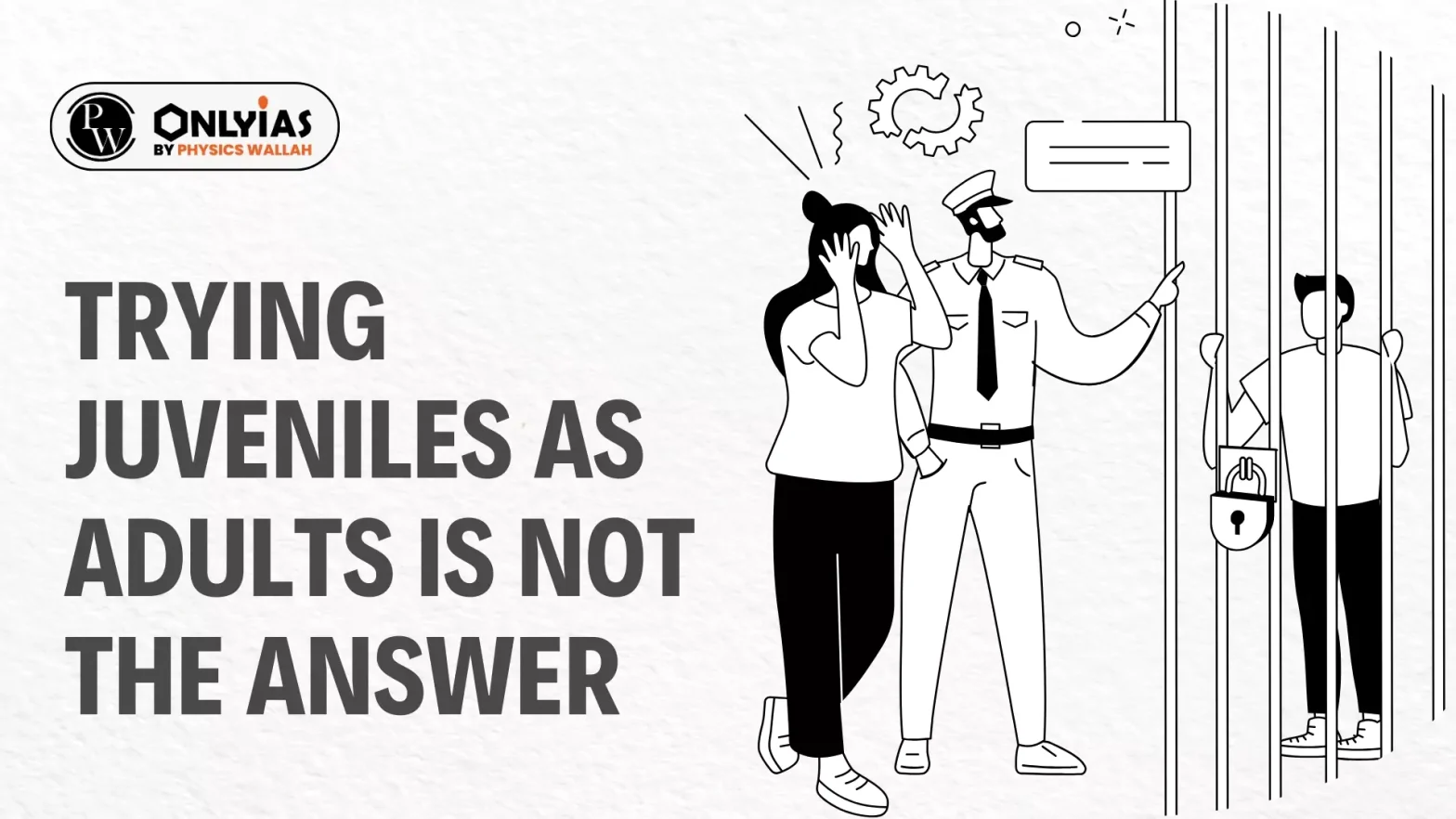In May, a speeding car, allegedly driven by a teenager, killed two young techies in Pune.
| Relevancy for Prelims: Juvenile Justice (Care and Protection of Children) Act, Juvenile Justice Board, etc.
Relevancy for Mains: Ethical implications of trying juveniles as adults, etc. |
Overview of Incident
- As prescribed by the Juvenile Justice (Care and Protection of Children) Act, or the JJ Act, 2015, the adolescent was initially brought before the Juvenile Justice Board (JJB), which granted him bail under seemingly lenient conditions.
- This decision, coupled with the tragic outcome of the incident and emerging accusations of privilege being used to tamper with the investigation, sparked public outrage.
- Following the backlash, the JJB modified its order, directing the adolescent’s detention in an Observation Home.
- This was challenged before the Bombay High Court, which directed his release on the ground that he was granted bail in accordance with due procedure.
- The High Court noted that the JJ Act is “not only a beneficial legislation, but is also a remedial one.”
- The push by some to prosecute the adolescent as an adult raises broader questions about the power of the juvenile justice system to address severe offences like drunken driving and the demand for accountability in cases involving young offenders.
Enroll now for UPSC Online Course
Being Tried as an Adult
- The JJ Act allows for the possibility of trying adolescents above 16 as adults if they are accused of committing a “heinous” offence.
- A “heinous” offence is one with a minimum punishment of seven years or more.
- Offences such as culpable homicide and causing death by negligence, which are common in drunken driving cases, are not “heinous” offences because they do not have a prescribed minimum punishment.
- The JJ Act, amended in 2021, now categorises an offence that has no minimum sentence but has a maximum sentence of more than seven years as a “serious offence” which, nonetheless, does not merit the transfer of a case to the adult criminal justice system.
- In any case, when an adolescent above 16 years of age is accused of a “heinous” offence, the JJB, a quasi-judicial body, conducts a preliminary assessment to determine if they should be tried as an adult.
- If it concludes that there is such a need, the adolescent is transferred to a sessions court, which independently assesses the suitability of trying the adolescent as an adult.
- These protections are based on the understanding that adolescence is a temporary developmental stage characterised by immature judgement and underdeveloped impulse control.
- This is recognised by the Supreme Court in Dr. Subramanian Swamy v. Raju (2014) and by the UN Committee on the Rights of the Child.
- Consequently, the juvenile justice system emphasises rehabilitation and social reintegration over punishment, acknowledging that adolescents, due to their high neuroplasticity, are more receptive to change.
Seeking Accountability
- Nonetheless, the juvenile justice system is rooted in holding offenders accountable for their actions.
- When an adolescent is found to have committed a crime, the JJ Act empowers the multidisciplinary JJB to tailor a response befitting the circumstances and the adolescent concerned.
- A conviction can result in institutionalisation of the offender, but with the express goal of rehabilitation.
- The JJBs can prescribe interventions such as therapy, psychiatric support, and de-addiction during and after institutionalisation.
- An individual care plan is prepared for the adolescent’s rehabilitation keeping in mind their socioeconomic conditions and the circumstances of the crime.
- This approach has the potential to foster accountability and healing, creating opportunities for justice that are often unattainable within the rigid confines of the punitive adult justice system.
Check Out UPSC CSE Books From PW Store
Conclusion
The juvenile justice system, emphasizing rehabilitation over punishment, seeks to balance accountability and reform, recognizing adolescents’ potential for 0
![]() 17 Jul 2024
17 Jul 2024
